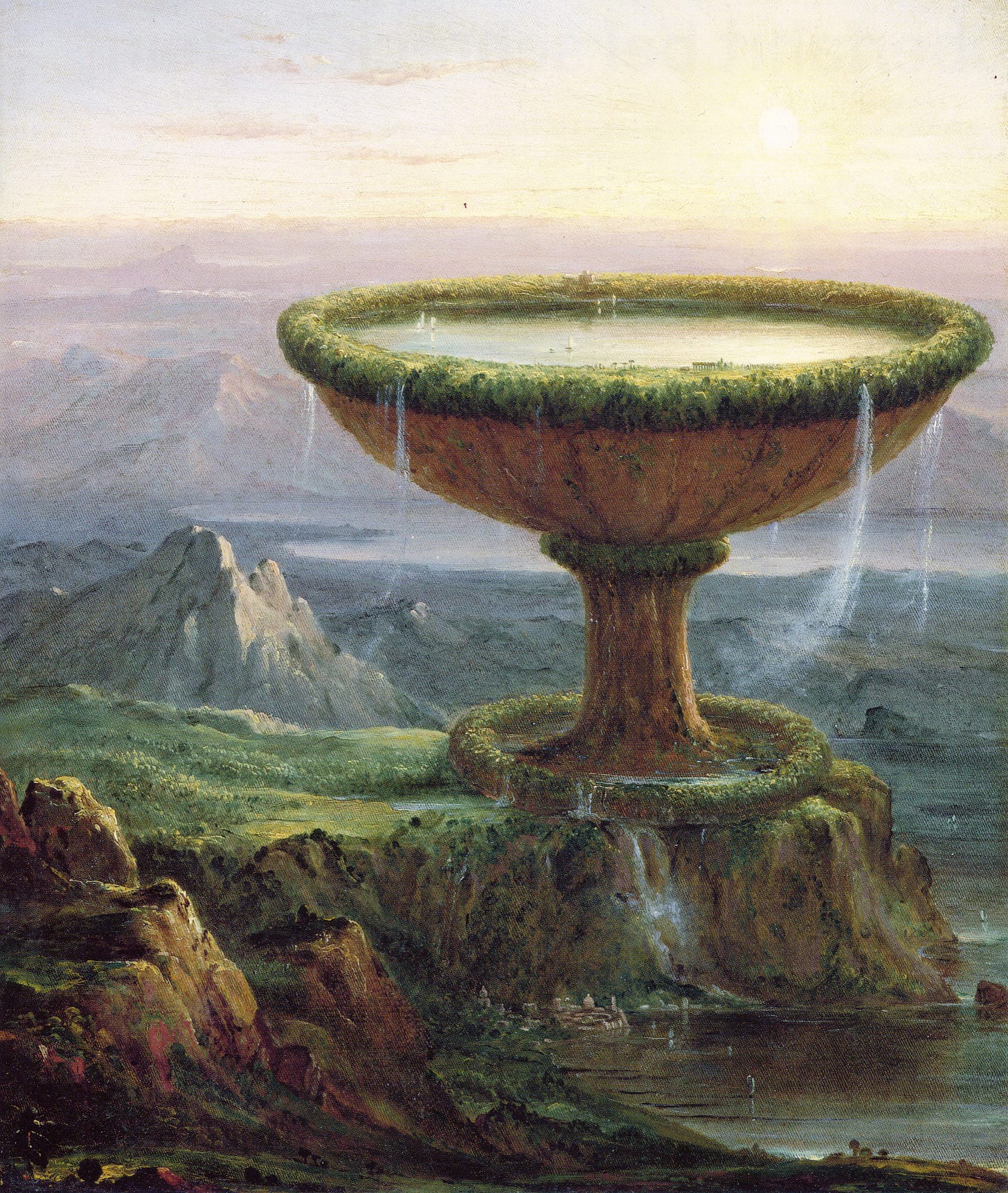Thomas Cole, Titan’s Goblet
Imagine you are sitting in a room speaking to a person about your life. Perhaps the conversation is about the crossroads you find yourself at, the creative block you are suffering, the difficulty you are having in advancing your career or difficulties with a relationship to yourself or someone else in your life.
You may imagine a friend, a parent, a partner, or perhaps a psychologist, psychotherapist, or coach. These all have their place, but there is an alternative, much older than psychotherapy, psychology, and coaching, it is called a dialogue, a spccial process and practice of self-discovery.
In the dialogue, your guide is not removed from you like many psychotherapists or life coaches, your philosophical counselor is involved. Yet, they are not just a friend who will just listen, sympathize, and agree with your feelings or thoughts. Yet, neither will they tell you what to think, believe, or impose a judgment on you or your thoughts. They are a partner, a guide, a student, a fellow traveler, a facilitator who is there with you to make the work of your life more clear, easier, but not easy. Their most prized characteristic is that they are doing—in their own life—the work they are also doing with you.
They are devoted to the process of learning, practicing, moving, looking, and inquiring. They don’t pretend to have answers, for they know there are none they could give you, because the only answers worth anything are those you arrive at by your self and on your own terms. Even then, whether what you discover is an answer, or just a step that keeps you moving along the sacred path of your life is an open question.
They know each person is a universe unto themselves, a rich tapestry of relations, beliefs, judgments, opinions informed by innumerable experiences, traumas, joys, tragedies, frustrations, and conditioning by the world they have lived in. They know your beliefs and concepts have been given to you or developed within you as your life has unfolded and they know they cannot know them as you do, because they would have to have lived every moment of your life up until that point, to get it, to get you.
So, what is the work? Most often it is a dialogue. A special kind where the counselor acts as a midwife for the ideas of your life. They are an assistant to your sacred process of coming to know your self, truly, deeply, as you are. They are there to help you find reality for your self, to be with you in the experience of the living reality of your self, moment-to-moment, and there to assist you in learning to move and inquire into that actual lived experience of your life, present, aware, curious, open, and engaged. They are there to help you stay with your self in the moment without narrowing in too much and without withdrawing from what is here, now, whether the experience is perceived as positive or negative. If you are successful you may just learn to experience pleasure as pleasure and suffering as suffering without attaching to it. Why would you do this? To become aware of the most precious gift, your Self and to see yourself as you truly are, to see the world as it is, and to see how you are relating to both.
When you see your self as you truly are and the world as it truly is, moving through it often becomes a bit easier, less obstructed by the projections and judgments of mind that have trapped us all for most of our lives. For you learn to see the projections and judgments of mind and see your self and see the world at the same time. In other words: you gain clarity. Or perhaps, you simply just get a little bit better at catching the projections and judgments, for even catching one, is movement, progress, if you will, towards seeing things as they are in the moment.
When the water is calm and clear, you can decide whether swimming is a good idea, as you will see what is swimming around and below you, what the bottom looks like, and you can have the knowingness of the moment to make the decision to take the dip, or not.
How is the work done? In the moment. Present. Aware. A philosophical counselor facilitates a space, a space of trust, a space of exploration, a space free of judgment, though not free of rigor, in which the client explores with their guide, the life of self, mind, feeling, emotion, thought, experiences, where the counselor is a living mirror reflecting the client back to them self so they can see themself. Like a gentle ocean current, a counselor will guide a client with questions arising from the moment so the client can explore themselves, their ideas, and what it is they need then and there to see unobstructed.
Yet, it is not uninvolved, for a real dialogue is not one way, and there is no successful dialogue without full involvement of the participants. It is a creative moment, requiring openness, and deep relationality and the willingness to be changed, both counselor and client.


